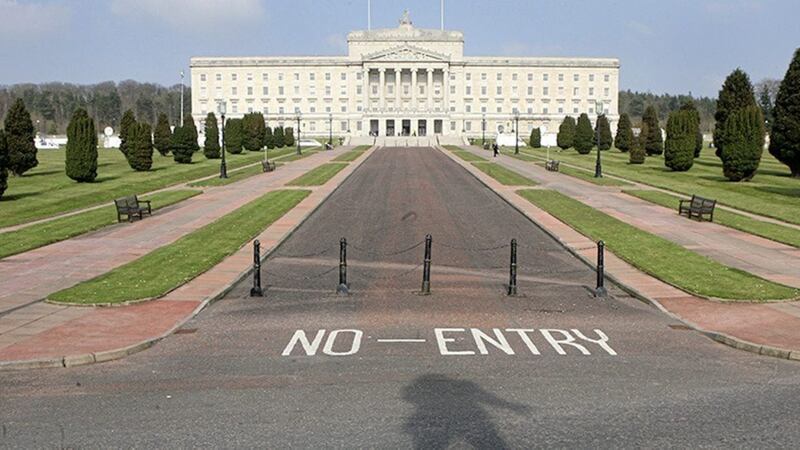I'm always chary when it comes to popular opinion - the 'what everyone is actually thinking' line - because it's usually simplistic and ill-considered: or, as Mark Twain put it: "The trouble with generally held opinions is that they are generally wrong."
Yet, when it comes to the issue of MLA salaries I am, broadly speaking, with the man on the street.
Paying someone - even a reduced amount - for a job they are not doing is offensive. There really is no other word to describe it. School budgets are being cut. Hospital waiting lists are growing. Key economic decisions are being postponed. Cans are being kicked. Balls are in the air. Civil servants are assisting the DUP and Sinn Féin to avoid any embarrassments which could flow from Freedom of Information questions. There is no executive. Northern Ireland has become the institutional equivalent of a granny flat. And yet we're still paying our MLAs the full whack.
Karen Bradley, like James Brokenshire before her, sidestepped the issue on Monday with the aplomb and grace of Ann Widdecombe and John Sergeant on Strictly Come Dancing. She said she was 'minded' to take the advice of Trevor Reaney (who advised Brokenshire three months ago to cut salaries by 27.5 per cent), but opted for, "I would welcome full and final representations from the Northern Ireland parties before I make a final decision." That's a bit like asking the condemned man and his family for their representations on the death penalty.
MLAs are elected to work, primarily in a legislative assembly: to agree a Programme for Government, form an executive, scrutinise legislation, hold ministers to account and provide stable, responsible government. They are not doing that. They haven't done it for 14 months and there's little prospect of them doing it anytime soon.
They say that they still have constituency work to do, yet from what authority is that work done? The authority an MLA possesses is rooted in their being a functioning member of the assembly--which clearly they're not now. So any letter or representation they make could just as easily be done by a local councillor (of whom we have 462) or MP.
The argument is made that if salaries are stopped or significantly reduced: "We could lose a whole political generation." So what? As I say, we've another 462 of them sitting on councils and I'm pretty sure many of them would be happy to move up a rung if the opportunity presents itself.
Believe me, there will always be people willing to stand for election to an assembly, even if this one collapses and we have to wait a few years for the next one. Anyway, it might be no bad thing if a new generation--hopefully outside present mainstream politics--was to emerge.
But what worries the government most is being confronted with more evidence that the key institutions of the Good Friday Agreement--the executive and assembly--are so deeply frozen that it becomes impossible to avoid the conclusion that it's actually dead. Not pining for Norwegian fjords, but nailed to the Stormont perch by means of monthly checks and faux titles and responsibilities.
Let's face it, Theresa May would rather have a Cabinet composed of Boris Johnson clones than have to deal with Northern Ireland on a daily basis and Arlene and Michelle bending her ear every afternoon.
That's why Mrs Bradley--who has as much interest in running the place as I have of being trapped in a lift that has country and western music on continuous loop--will try anything to avoid closing the assembly. There are even rumours that she might be tempted to defrost it a little and describe it as a consultative assembly. Yep, people who can't form their own government would still be paid to help someone who doesn't actually want to govern here in the first place!
But what about the MLAs and parties outside the DUP/SF? Don't they deserve a chance. No. They didn't get a sufficient mandate in 2017. And since the SDLP/Alliance/Greens/PBP and UUP/TUV are polls apart on an Irish language act and on many socio/ethical/economic issues, I'm not even sure they could cut their own deal.
I accept they are not responsible for the ongoing impasse, but on the grounds that they knew what they were letting themselves in for and don't, as it stands, have an obvious solution (mind you, they've had 14 months to conduct their own talks and offer an alternative) then I don't see a compelling argument for ring-fencing their salaries or careers.
In a parallel universe it might be normal to indulge in pretend politics and pamper soi-disant politicians. But this is Kansas. It is no longer a question of by how much we should reduce their salaries. The only question is this: why are we even paying MLAs anything at all.









